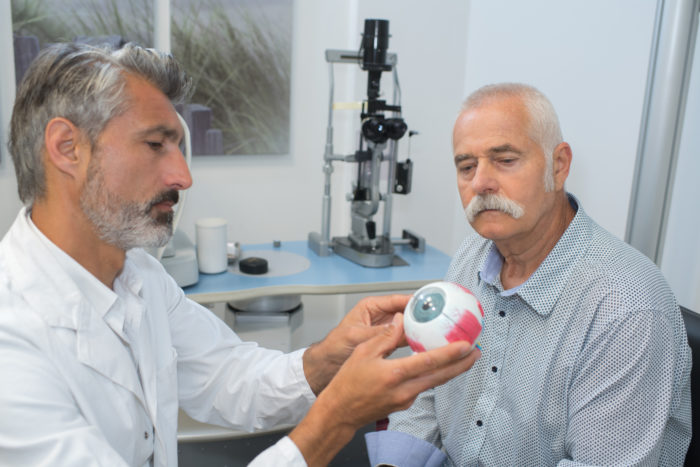Insurers Push for Cheaper, Untested Eye Treatment
August 26, 2021
Injecting a syringe of an unapproved treatment into a patient’s eyeball would be a nightmare scenario for most ophthalmologists. But that is what many major insurance companies are now suggesting doctors do.

A Supply Shortage
The situation arises from a shortage of bevacizumab, a biosimilar drug that slows macular degeneration, the leading cause of blindness among older Americans. Optum, a major manufacturer of the drug, has suspended production while it overhauls some manufacturing facilities.
To fill the supply gap, many large health plans started pressing physicians to use one of two other biosimilars instead of the go-to treatment. Unlike bevacizumab, however, neither of the suggested substitutes has ever been clinically tested for use in the eye.
The American Academy of Ophthalmology has strongly objected, calling out insurers for making patients “unwitting subjects in a clinical experiment.” Even the manufacturers of the recommended substitutes have advised against their medication being used in this way.
Putting Profits Over Patients
The insurers’ recommendation is not only unsafe, but also unnecessary. There are approved alternatives for bevacizumab that are safe for use in the eye and also currently available.
It’s a question of health plan profit. The substitute suggested by insurers costs less than the approved alternatives and less than bevacizumab itself. The situation is another example of insurers putting their profits over patients’ best interest.
“Their pursuit of the bottom line is a danger to patient safety,” warned the American Academy of Ophthalmology.
Adjusting Course
Last month, the American Academy of Ophthalmology and other advocacy groups called on federal officials to prohibit the substitution for Medicare Advantage and exchange plans.
Since the industry group first raised the issue, UnitedHealthcare is the only insurer to clarify its policy regarding the use of the two untested biosimilars. Now, doctors and patients alike are waiting to see if other insurers will follow suit for the sake of patients’ safety – and patients’ sight.
Tags: Biologics, VisionCategorized in: Blog

